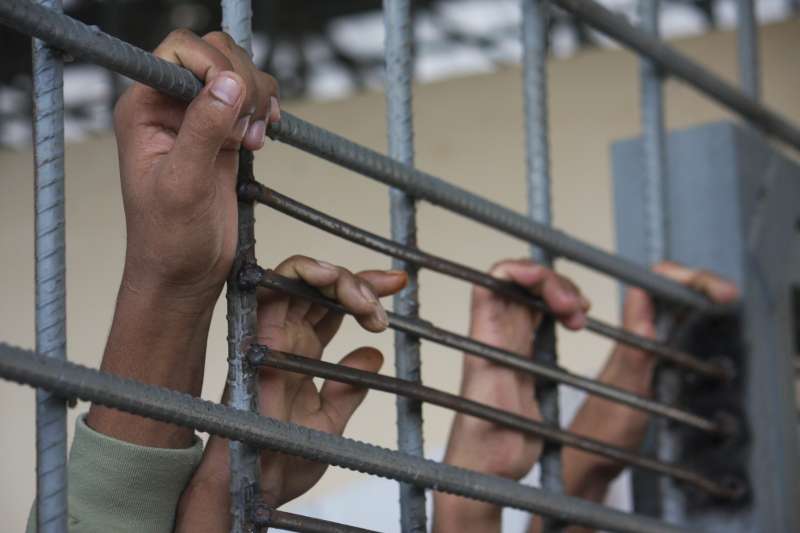Detention
The three main goals of the strategy are to
- End the detention of children
- Ensure that alternatives to detention are available in law and implemented in practice
- Ensure that conditions of detention where detention is necessary and unavoidable meet international standards by, inter alia, securing access to places of immigration detention for UNHCR and/or our partners and carrying out regular monitoring.
The Global Strategy is implemented at country and regional level, through the development of specific national plans of action. These include a set of specific actions and initiatives that need to be developed in order to achieve the overall global goals, including strong advocacy interventions, awareness-raising and campaigning, cooperation and capacity-building, strengthening partnerships, information sharing, data collection and reporting, research and monitoring.
UNHCR has been working under the framework of the Global Strategy and in close coordination with various relevant stakeholders in a number of countries around the world, including Belgium, Botswana, Bulgaria, Canada, Czech Republic, FYR of Macedonia, Japan, Hungary, Indonesia, Israel, Lithuania, Malaysia, Malta, Mexico, Republic of South Africa, Thailand, the United Kingdom, the United States, Zambia and Zimbabwe.
UNHCR is committed to continue its advocacy and protection efforts to encourage countries worldwide to revisit their detention practices and to strengthen alternatives to detention and other non-custodial measures for asylum-seekers and their families.
Key document: Detention Guidelines UNHCR position on non-detention of children
Beyond detention
Alternatives to Detention
- Global Roundtable on Reception and Care-Arrangements for Asylum-Seeking Children, Summary of Discussions, 10-11 October 2018, Bangkok, Thailand
- UN High Commissioner for Refugees (UNHCR), Options Paper 1: Options for governments on care arrangements and alternatives to detention for children and families, 2015
- UN High Commissioner for Refugees (UNHCR), Options Paper 2: Options for governments on open reception and alternatives to detention, 2015
Monitoring Immigration Detention
- UNHCR Policy on Detention Monitoring UNHCR/HCP/2015/7
- UNHCR, Association for the Prevention of Torture (APT) and the International Detention Coalition (IDC), Monitoring Immigration Detention: Monitoring questionnaire
- UNHCR, Association for the Prevention of Torture (APT) and the International Detention Coalition (IDC), Monitoring Immigration Detention: A Practical Manual, 2014
Beyond Detention statements

UNHCR - IDC video on alternatives to detention for children
Guidelines and Tools
- Engaging with the Working Group on Arbitrary Detention
- UNHCR Guidelines on the Applicable Criteria and Standards relating to the Detention of Asylum-Seekers and Alternatives to Detention, 2012
- UNHCR-IDC Vulnerability Screening Tool - Identifying and addressing vulnerability: a tool for asylum and migration systems, 2016
- IDC-UNHCR Vulnerability Screening Tool – Handout
- Stateless Persons in Detention: A tool for their identification and enhanced protection
- Compilation of International Human Rights Law and Standards on Immigration Detention, UNHCR, February 2018
- Guiding Questions for the assessment of Alternatives to Detention
Our partners
- Association for the Prevention of Torture
- International Detention Coalition
- Global Campaign to End Child Detention

